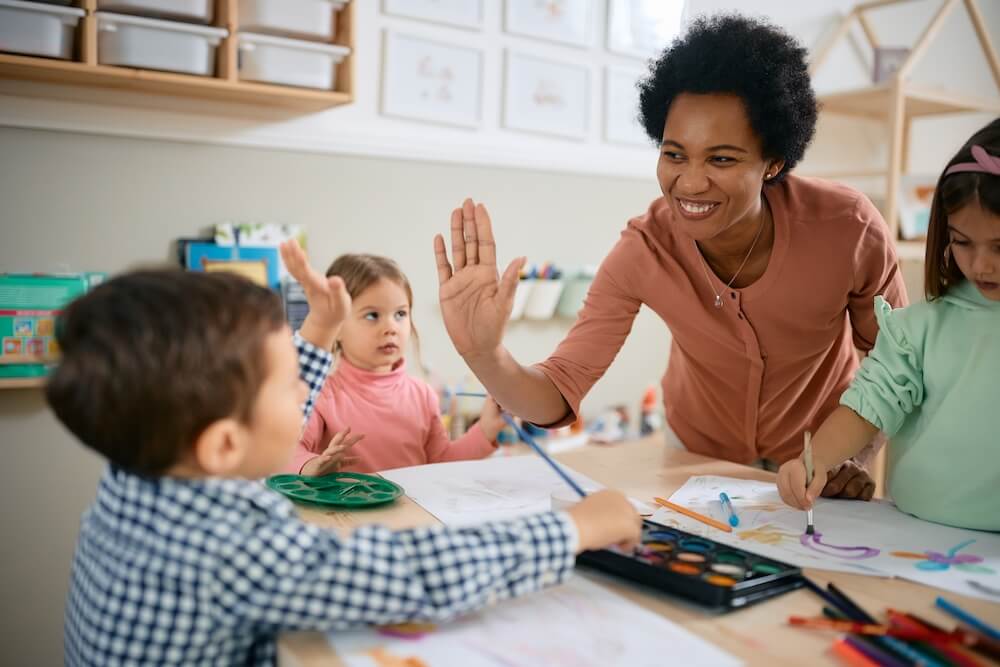Mental health in children is extremely important. In addition to taking care of it, we must teach our children to cultivate mental health for themselves, so that they can have optimal growth in all areas of development.
What does it mean for a child to have good mental health?
It means that children can think, feel, and positively relate to others and different contexts, like at home or at school, which allows them to experiment, discover and learn about the world and their limitations, acquiring the necessary skills to solve all sorts of problems (cognitive, emotional or social), contributing to their general well being.
How to promote mental health in children
Taking into account that mental health needs to be cultivated every day, here you can find some tips to promote and care for mental health in children.
Help your child build a sense of belonging
Either at home or school, feeling accepted and trusting others (parents, teachers, peers, etc.) is very important for your little one to have strong self-esteem and build positive relationships. Motivate them to take part in group or family activities, talk to them, listen to them carefully, and show them that they’re an important part of the community they belong to.
Foster resilience in the face of adversity
This will help them have more confidence and trust in themselves, by knowing they can face difficult situations and overcome challenges in a positive way.
Create a safe and positive environment
Some actions that can help create this kind of environment, both at home and at school, are fostering positive and empathic behavior, and preventing negative conducts, like intimidation and bullying. Establishing fair and clear rules that promote an atmosphere of safety and mutual respect is also very important and can be very helpful.
Promote prosocial behavior
Motivate your child to help others and act and think with empathy. This will help them create bonds and reinforce their social relationships, while also developing their self-esteem by making them feel like they belong to a group, both at home and in the classroom.
Allow time and space to play freely
Children learn and develop motor, linguistic, emotional, and cognitive skills while playing. Play allows them to practice and comprehend different situations and social roles, as well as letting them express thoughts and feelings that might be hard to describe with words.
Regardless of where they are or who they’re with, to promote mental health in children, it is fundamental to treat them with affection and love, and that their physical and psychological needs are met constantly and with kindness.
It’s important to point out that physical and mental health are not entirely independent from one another, but rather connected. Having healthy eating habits, good sleeping and rest patterns, and exercising regularly can prevent excessive stress and emotional turmoil when problematic situations arise.
References
- Children’s Mental Health
- Children and mental health – Is it just a stage? – Spanish (Los niños y la salud mental ¿Es solo una etapa?)
- Recommendations to foster mental health in children – Spanish (Recomendaciones para fomentar la salud mental de los niños: consejos para padres y educadores)
- Manual for the promotion of mental health in early childhood (Manual para la promoción de salud mental en primera infancia y detección de riesgos psicosociales de las y los cuidadores (as) de niños y niñas menores de seis años)








